Tanzania Election Aftermath: Suluhu Wins Amid Deadly Unrest and Mounting Calls for Restraint
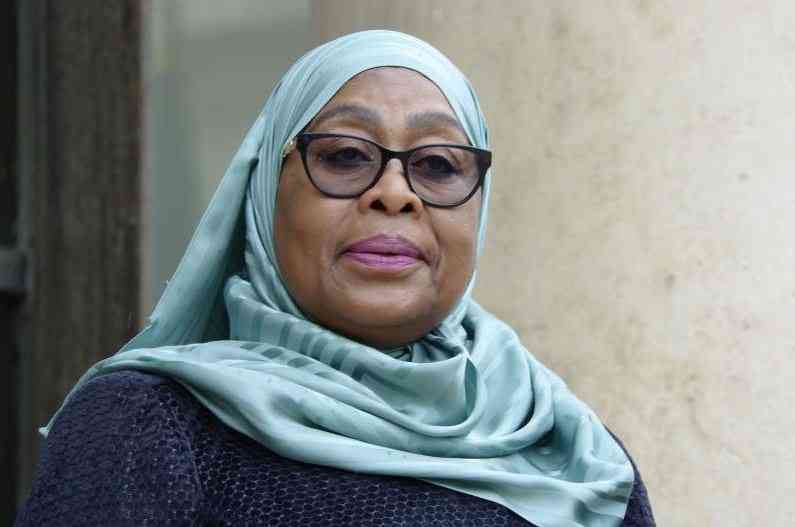
Tanzania's political landscape has been marked by significant shifts since President Samia Suluhu Hassan ascended to power in March 2021, following the sudden death of her predecessor, John Pombe Magufuli. Initially, her rise was met with global celebration and hope; a soft-spoken, motherly figure, modestly dressed, stepping into a formidable political role, widely anticipated to temper the intensity of Tanzanian politics. However, the period leading up to and following her re-election in October 2025 presented a starkly different narrative, characterized by deep division, widespread protests, and international concern.
President Suluhu Hassan, running as the Chama Cha Mapinduzi (CCM) candidate, was declared the winner of the presidential election, securing an overwhelming 98% of the votes. According to the electoral commission, she garnered approximately 31.9 million votes, representing 97.66% of the total, with a voter turnout nearing 87% of the country's 37.6 million registered voters. In her victory speech, President Hassan described the election as "free and democratic" and condemned protesters as "unpatriotic." This official stance, however, sharply contrasted with the views of opposition parties, particularly CHADEMA and ACT-Wazalendo, who rejected the results, branding the vote a "mockery of the democratic process." Their criticisms were fueled by the fact that key opposition contenders, such as Tundu Lissu, who faced treason charges he denied, and Luhaga Mpina of the ACT-Wazalendo party, were either imprisoned or excluded on legal technicalities, leaving only sixteen fringe parties with historically minimal public support to contest.
The announcement of President Hassan's victory ignited widespread unrest across Tanzania, with protests erupting on October 29 and 30, 2025, in major cities like Dar es Salaam and Kigoma. Demonstrators, largely young people, took to the streets, tearing down presidential posters and clashing with security forces, who responded with deployments, water cannons, and an extended curfew. These confrontations led to alarming reports of casualties; opposition sources claimed around 700 people were killed in clashes, while a diplomatic source indicated credible evidence of at least 500 fatalities. The violence, compounded by a nationwide internet shutdown, made it difficult to verify the full extent of the death toll. Beyond the human cost, the British High Commission in Tanzania reported severe shortages of food, fuel, and cash, further exacerbating the crisis.
International and regional reactions to the election and its aftermath were notably divided. While some African leaders, including Burundi President Évariste Ndayishimiye and Somalia President Hassan Sheikh Mohamud, promptly extended congratulations, praising Suluhu's victory as a reflection of Tanzanians' confidence and reaffirming commitments to bilateral ties, their messages were met with skepticism online. African Union Commission Chairperson Mahmoud Ali Youssouf also congratulated Suluhu but simultaneously expressed profound regret over the loss of lives during post-electoral unrest, emphasizing the importance of upholding fundamental rights like peaceful assembly and expression.
In contrast, numerous international bodies and countries voiced strong concerns. The European Union expressed "extreme concern" over fatalities and injuries, urging maximum restraint from authorities and highlighting a "lack of level playing field" during the election, alongside reports of "disappearances and violence limiting the civic and democratic space." The EU called for the release of detained politicians and thorough investigations into violence. The Southern African Development Community (SADC) appealed for an immediate cessation of hostilities and urged Tanzanian security forces to act with restraint. UN chief Antonio Guterres conveyed deep concern about the situation and reports of deaths, urging all parties to prevent further escalation. The UK, Canada, and Norway echoed these sentiments, citing "credible reports of a large number of fatalities and significant injuries." Domestically, Kenyan Senator Samson Cherargei, while congratulating Suluhu, urged inclusivity, stating that elections should not have proceeded without reforms and an expanded democratic space. Public sentiment on social media reflected deep skepticism, with users questioning the credibility of the election and criticizing leaders and organizations for congratulating Suluhu amidst human rights concerns, labeling the AU as "toothless" and "detached from reality."
The political landscape in Tanzania has historically been dominated by the CCM and its predecessor, Tanu, which have never lost an election since independence. However, prior to the 2025 election, human rights groups like Amnesty International had condemned what they described as a "wave of terror," involving enforced disappearances, torture, and extrajudicial killings of opposition figures – claims the government rejected, insisting the election would be free and fair. This historical context and the pre-election repression concerns further complicated the perceptions of the 2025 polls.
In Zanzibar, Tanzania's semi-autonomous archipelago, the CCM's Hussein Mwinyi, the incumbent president, also secured a victory with nearly 80% of the vote. However, similar to the mainland, the opposition in Zanzibar reported "massive fraud," adding another layer to the contested electoral outcomes across the nation.
The events surrounding President Samia Suluhu Hassan's re-election have thus plunged Tanzania into a period of uncertainty and scrutiny, challenging its reputation for calm and order. The deep divisions, human rights concerns, and calls for electoral integrity underscore the significant political and social challenges facing the nation as it navigates a path forward.
Recommended Articles
Iron Grip on Tanzanian Polls: President Suluhu's Solo Race
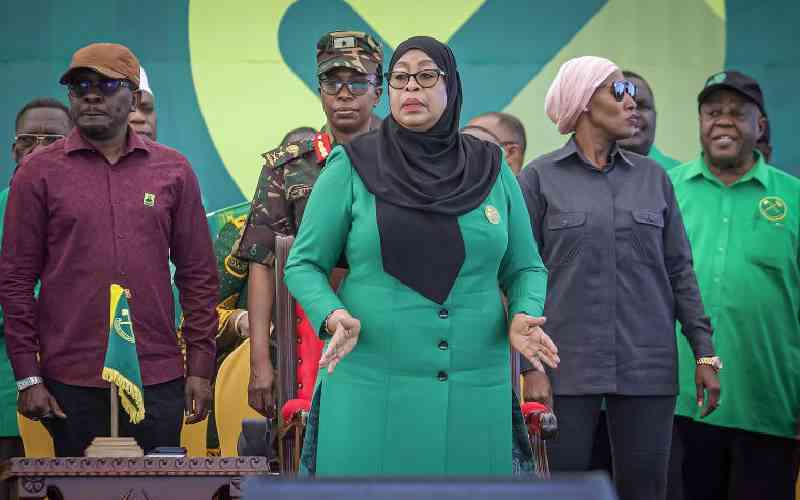
Tanzania faces a general election today amidst an uneasy calm, with serious questions raised about the country's democra...
Tanzania Shakes as Suluhu's Stunning 98% Win Redefines Political Landscape
&format=jpeg)
Samia Suluhu Hassan made history as Tanzania's first elected female president in a controversial 2025 election, securing...
Tanzania's Election Firestorm: Suluhu's Contentious Win Sparks Opposition Fury and AU Intervention
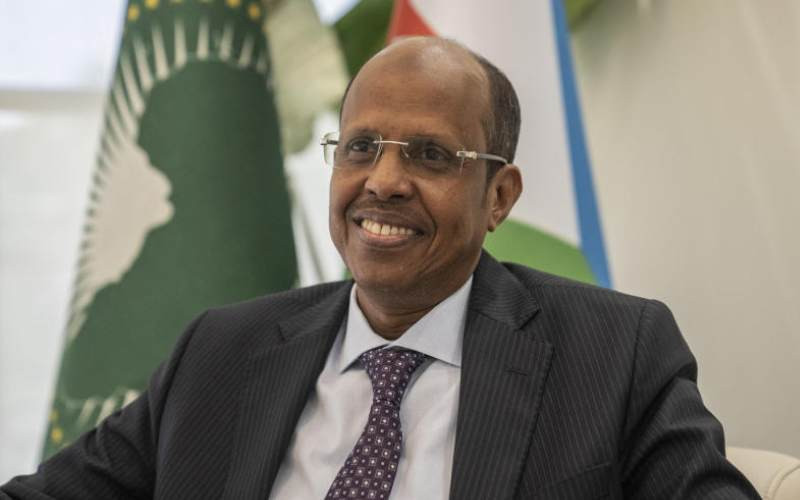
Tanzania's recent presidential election has seen President Samia Suluhu Hassan declared the winner with a reported 98% o...
Tanzania Erupts: Suluhu's Presidential Win Sparks Fury, Election Results Rejected Amidst SADC Warnings

Tanzania's presidential election results face strong rejection from the main opposition party, CHADEMA, which labels Pre...
Tanzania Election Turmoil: Suluhu's Landslide Win and Aftermath
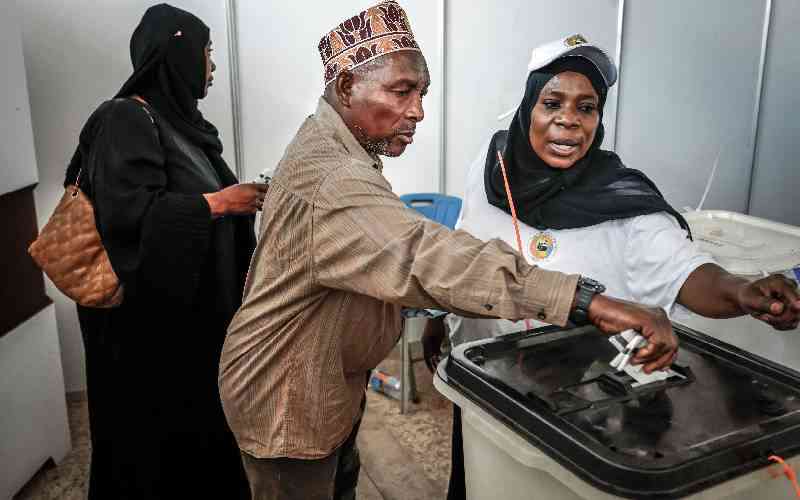
Tanzania's presidential elections concluded with incumbent Samia Suluhu Hassan declared the winner amidst widespread pro...
You may also like...
Wolves Coaching Chaos: Pereira Fired, High-Stakes Search for Replacement Begins!

Wolverhampton Wanderers have sacked manager Vitor Pereira after a dismal start to the Premier League season, leaving the...
Netflix's Next Sensation: Forgotten HBO Series with 97% RT Score Set to Explode!

The critically acclaimed series Minx is making its highly anticipated move to Netflix on November 4, marking its third s...
Hollywood Crisis: October Box Office Hits Devastating 30-Year Low!

October proved to be a historically challenging month for the box office, recording its worst collective haul since 1997...
Cardi B's Sideline Surprise: Rapper Cheers On Boyfriend Stefon Diggs at Patriots-Falcons Game

Cardi B made a high-profile appearance at Gillette Stadium, cheering on the New England Patriots while seated next to Ro...
Taylor Swift Reigns Supreme: 'The Life of a Showgirl' Dominates Billboard 200 for a Month

Taylor Swift's "The Life of a Showgirl" secures its fourth week at No. 1 on the Billboard 200, extending her record amon...
Fintech Powerhouse Flutterwave Unites with Polygon to Ignite Stablecoin Payment Revolution

Flutterwave has partnered with Polygon Labs to launch a stablecoin-powered cross-border payment network across 34 Africa...
Cambridgeshire Train Terror: Hero Staffer Fights for Life After Tackling Attacker

A mass stabbing on an LNER train between Peterborough and Huntingdon resulted in 11 hospitalizations, with a heroic rail...
Ghana Welcomes German President for Landmark State Visit
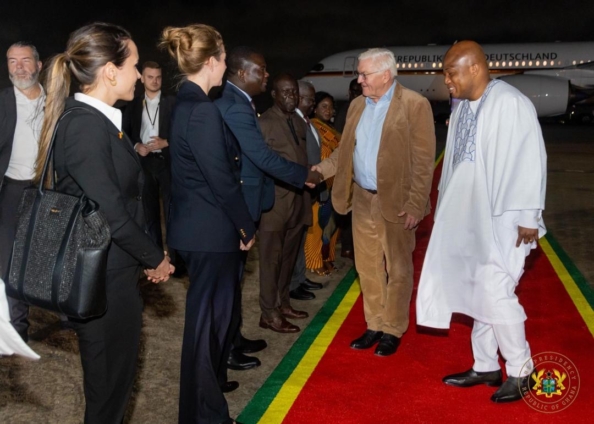
German President Frank-Walter Steinmeier embarked on a three-day state visit to Ghana, engaging in high-level discussion...